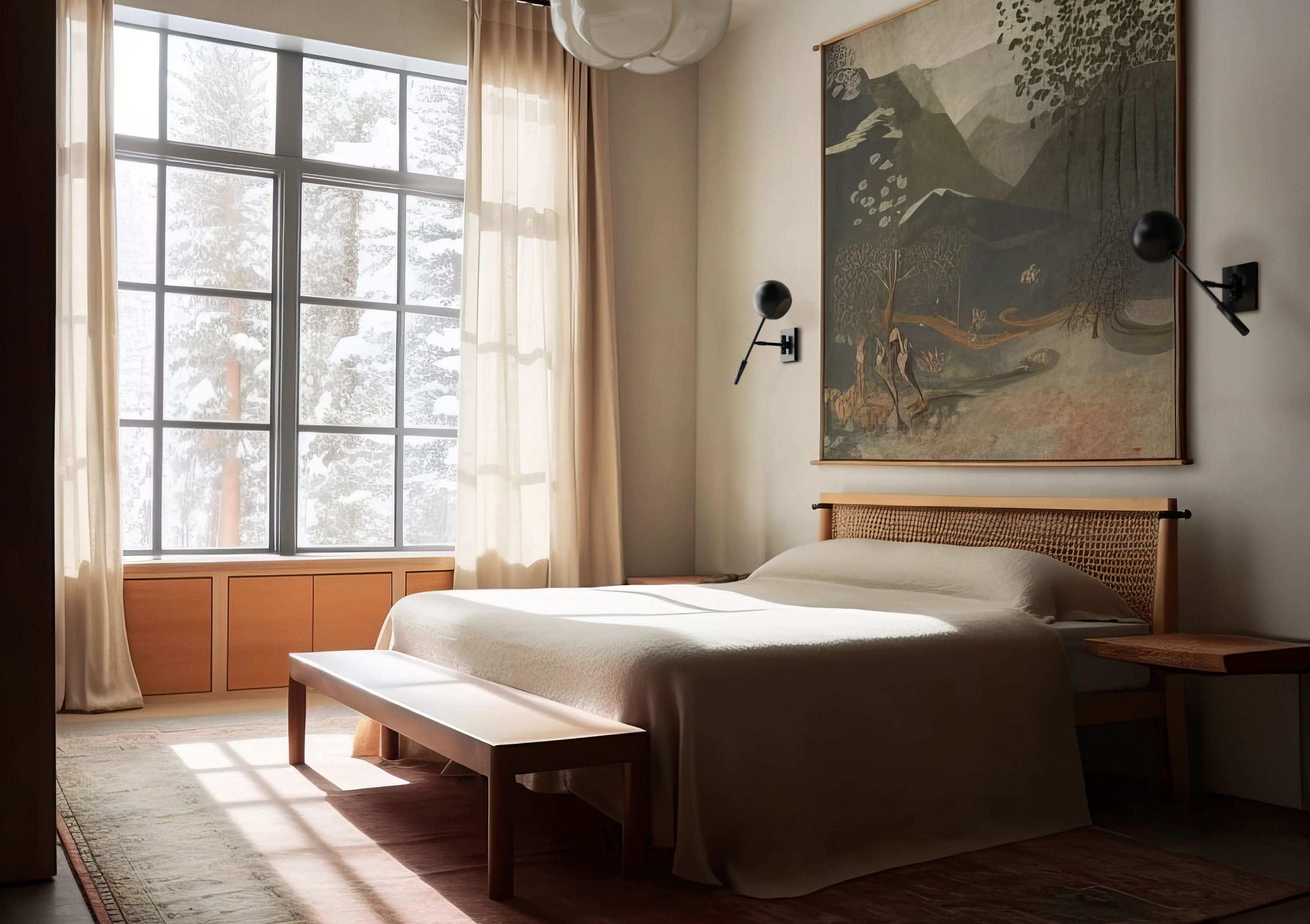
Tapestries might have a long-standing association with historic, traditional interiors, but we've spotted designers and homeowners bringing them into the more contemporary home, and we love the look. Typically displaying a rich, sumptuous palette, they bring an indulgent feeling to any style of interior, from a living room that is heavily decorated to even more minimalist style interiors.
The Aubusson tapestry is the most famous style, created in the upper valley of the Creuse in central France and dating back to the 16th century when the town developed a brand new style of weaving. Today, this style is being replicated in more modern works. Aesthetically, this style of tapestry doesn't just bring a touch of luxe to your interior, but it can work to muffle sound through walls, and even function as an extra insulator. They work as a piece of art too, imposing a presence in a dining room, living room, or entryway.
For Amy Kalikow of Amy Kalikow Design, the trend for this style of tapestry is all about homeowners on a quest for extra texture. 'People are looking for texture, and textured wall art with depth adds to the room and is unique in its design. Whether you are looking for natural or a pop of color, textured wall art can really bring a space to life.' We're convinced by the interior design trend and think you should be too. Here are five examples that prove they work in all types of interior.
1. This living room tapestry that adds texture
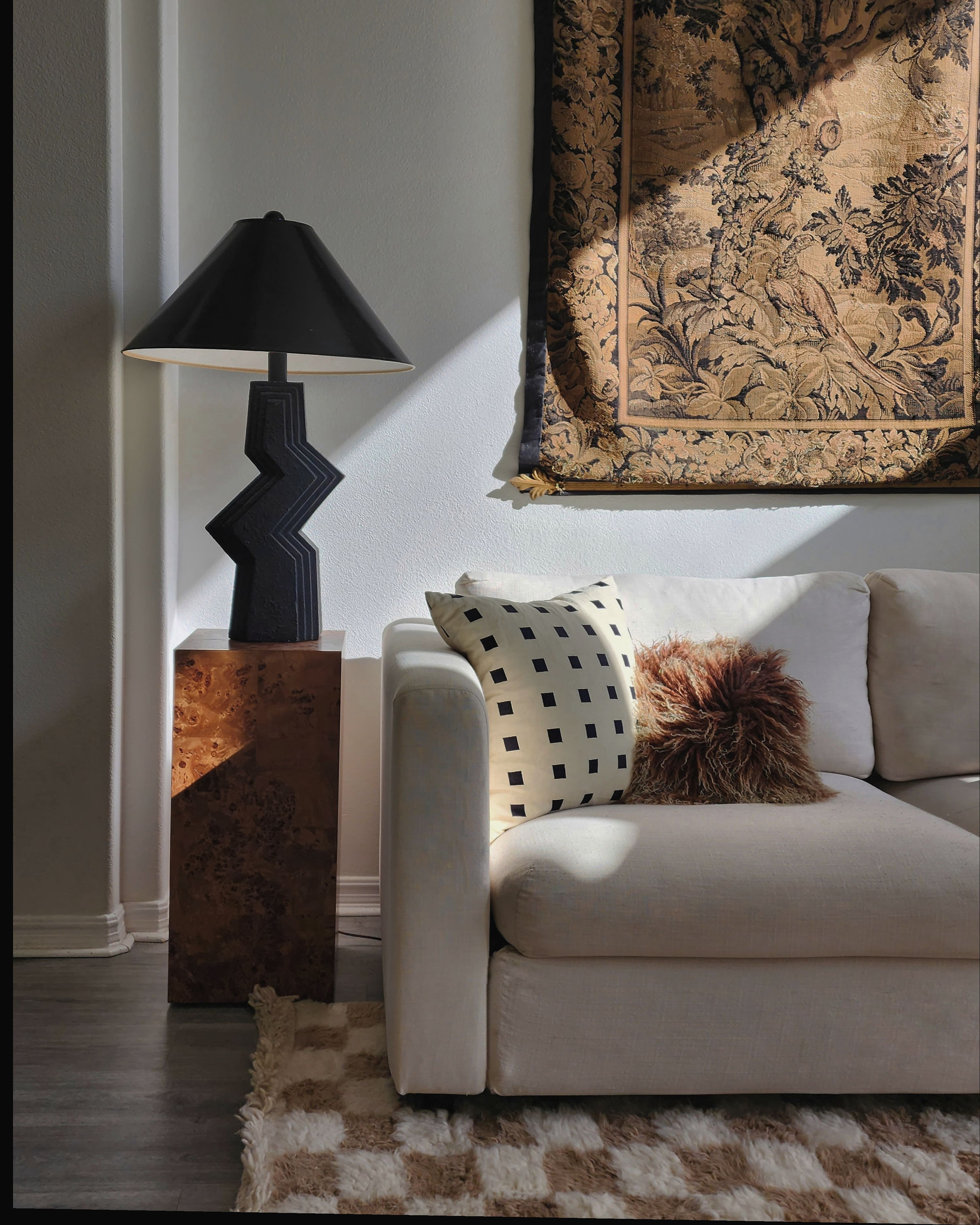
Bringing extra texture to the living room is the key focus for this tapestry, and it works perfectly with the patterns and high pile of the rug and cushion and even complements the hard textures of the end table and lamp. For designer Alida Coury, the founder of Alida Coury Interiors, the tapestry has been handed down, but its heritage is part of the charm.
'This tapestry is actually becoming a family heirloom,' explains Alida. 'My mother, who is also a designer, had it in her home over the years. She decided that it ran its course and recently gifted it to me. I had always admired her many tapestries even before they came back into style. She found this particular piece at a garage sale in the Chicago suburbs for $25 in the 80s. People were just not designing with them at the time and did not see the value in it. It also was in a delicate state being frayed and aged, so she invested in restoring the edges to preserve the design so she could hang it in her home.'
For Alida, its palette and texture is what makes it so versatile. 'Since it is one of the more neutral of the tapestries I have come across I love how versatile it is in any setting.
'I have a love of textiles and textures, so it is easy for me to implement a tapestry because it crosses over artwork in the form of fabric. The scenes are made of rich threads creating multidimensional tonality.
'In many of my client's homes and even my own space, I have a love for mixing modern contrasting designs with vintage pieces. By allowing a push and pull of styles the outcome feels more authentic and unexpected, I love that twist in an interior expression.'
2. This dining room tapestry that brings a sense of history
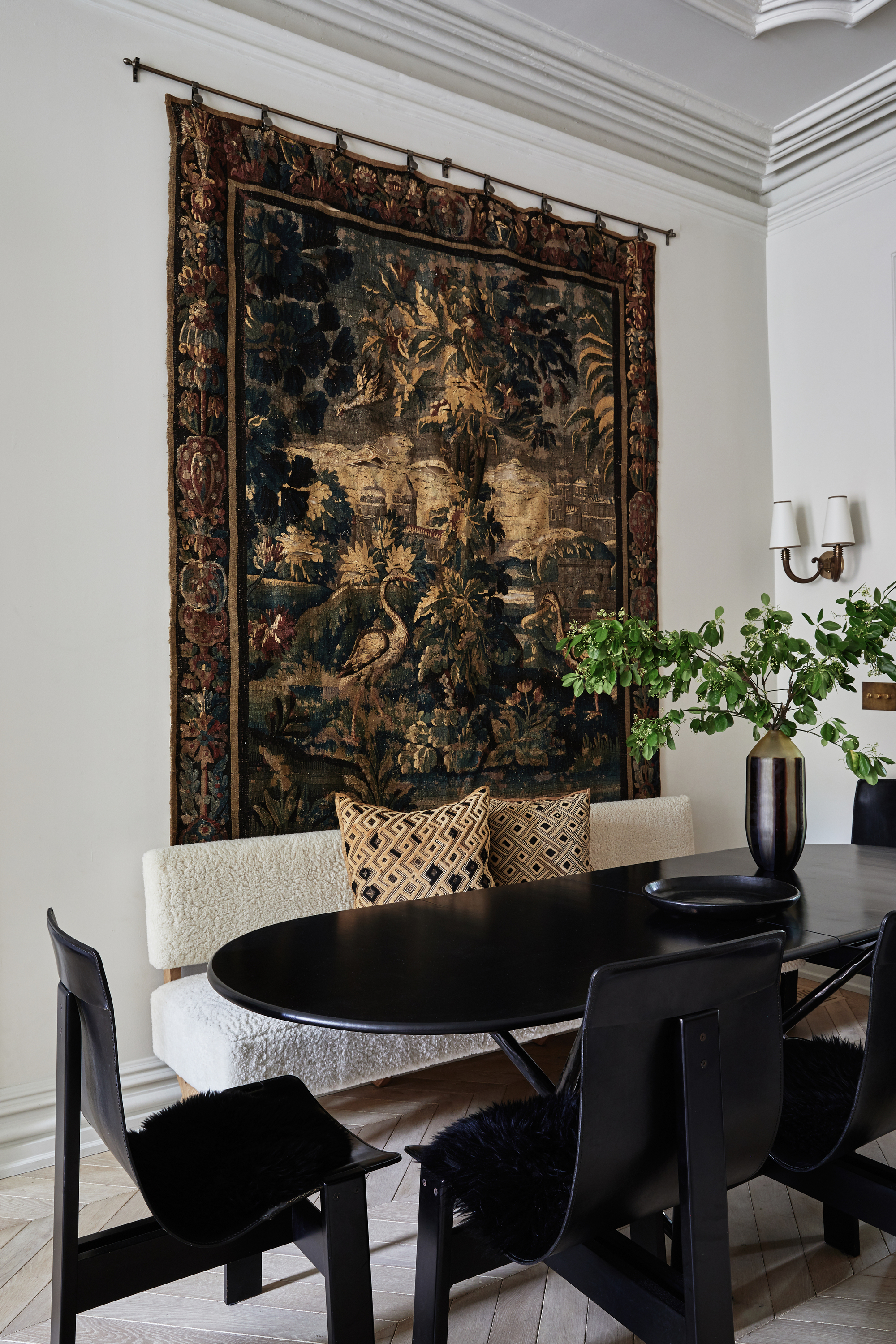
This wall tapestry becomes the starting role in this dining room, bringing interest to the white walls and being held up by a curtain rail with hardware that matches the wider aesthetic of the room. For designer Jennifer Chused, it brings a historic edge to the room. 'Using an antique wall tapestry in an interior can add a touch of heritage and character to the space,' says Jenna Chused of Chused & Co. 'I love to think about the walls that this tapestry has adorned before.'
'It serves as a unique decorative element versus a large-scale piece of art,' she adds. This tapestry was sourced on Antik, Jennifer Chused's very own platform showcasing a curated collection of furnishings and objects available to buy and to rent at a fraction of the price.
3. This landscape tapestry that offers a calming atmosphere
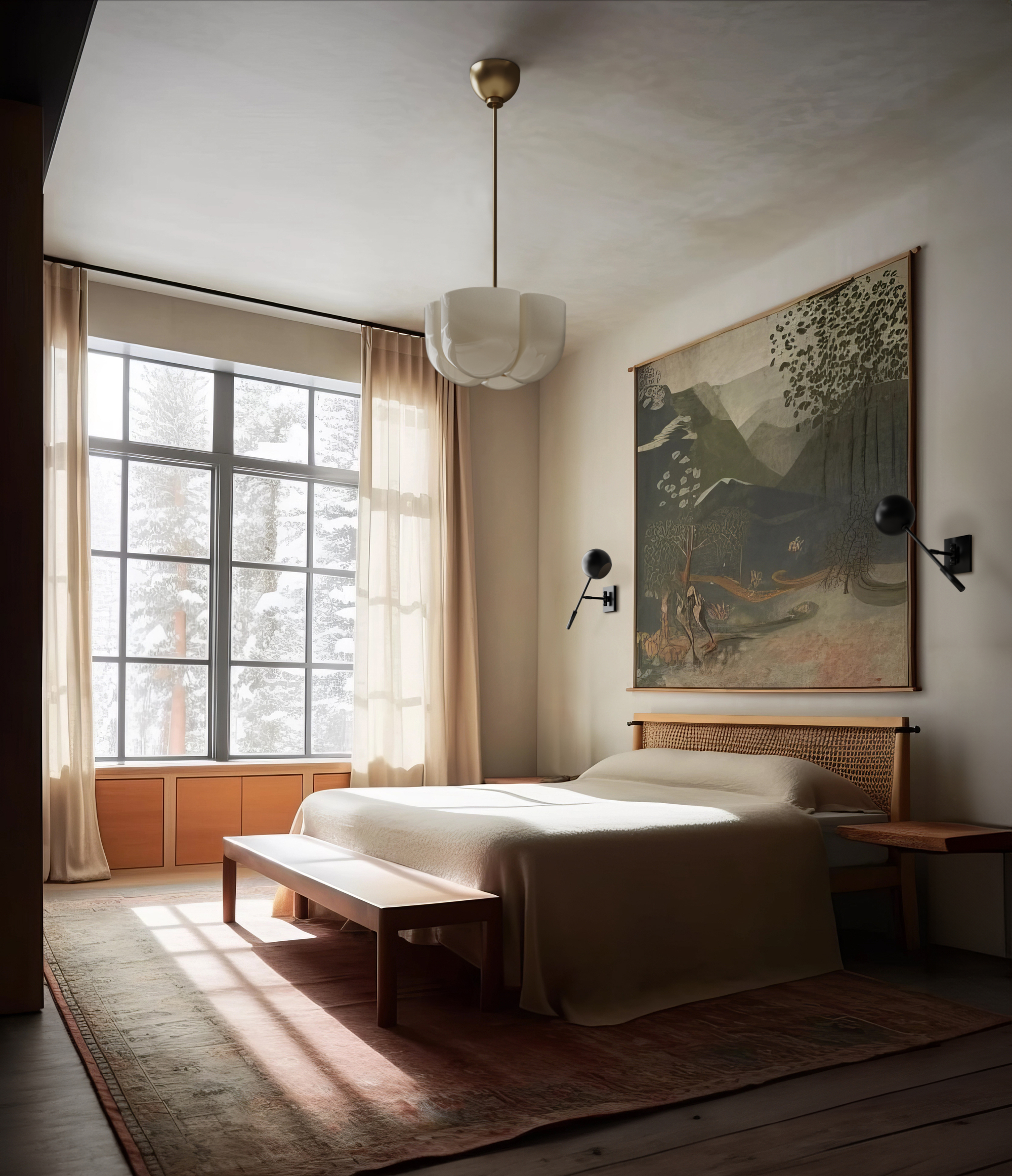
In this bedroom designed by Christiane Lemieux, the tapestry is used above the headboard to create a focal point, drawing the eye to the center of the room and the bed itself. 'I use tapestries as a functional decorative layer,' explains Christiane. 'They are so beautifully multi-purposed.'
For Christiane, the tapestry is the perfect bedroom addition because it brings warmth and coziness to the space, elements that you come to expect in a well-designed bedroom. 'They were traditionally used for warmth and insulation as well as décor and I believe that they still signal that today,' she explains. 'I use them liberally in chalet designs as it speaks to authenticity. They work well everywhere but especially in winter decor. They create a warm layer that is unlike anything else.'
4. This dining room accent wall
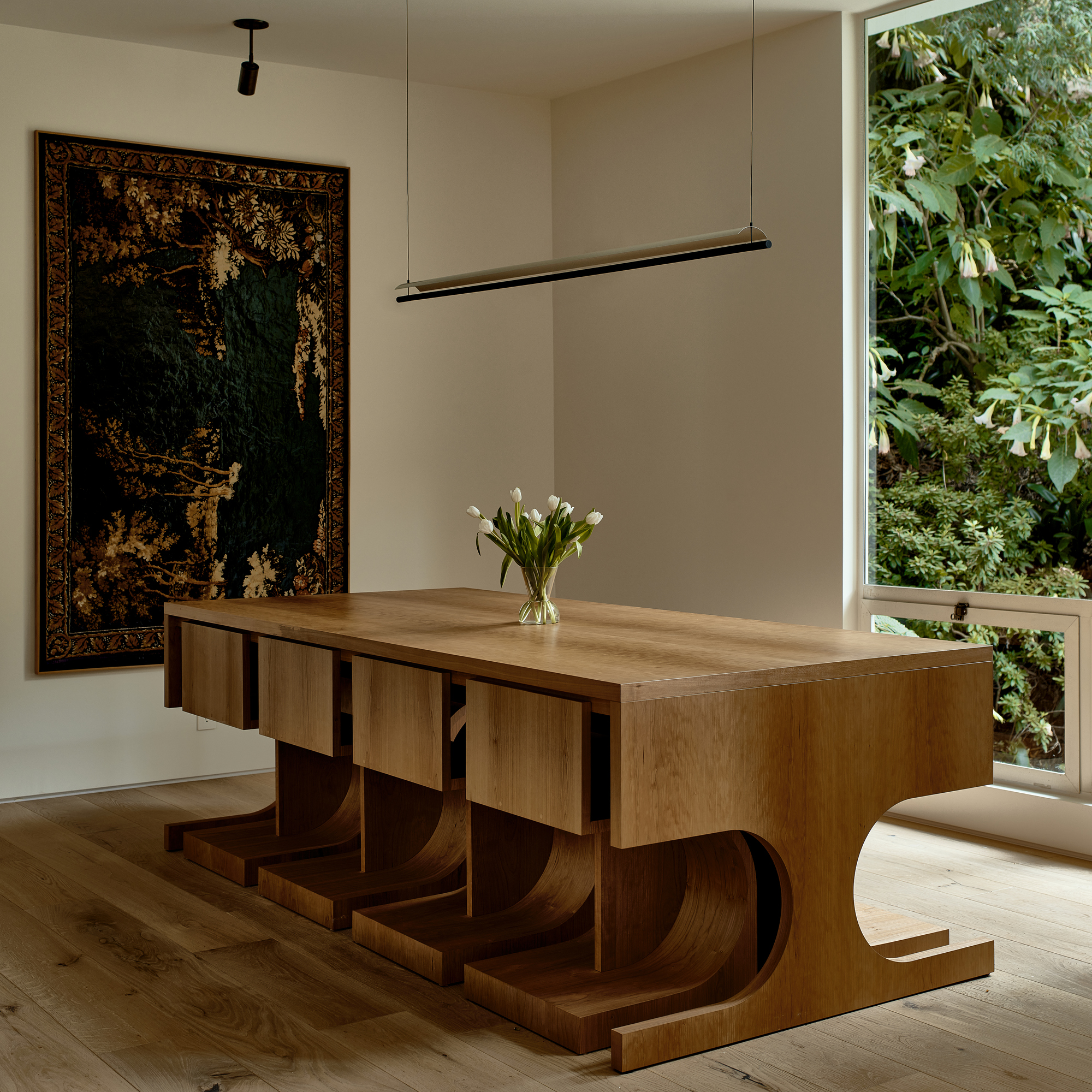
This room designed by Ome Dezin proves that you can use tapestries in a minimalist dining room, bringing texture to a space to bring that extra warmth. This art piece is by Ohio-based visual artist, Tyler Macko, who draws aesthetic inspiration from recent American histories of decorative art, bringing a sense of place to his tapestries.
The art is dark in color palette, but the designers at Ome Dezin gave the homeowners the option of enjoying the artwork with a well-placed wall light that shines a light on the intricacies of the weave.
5. This ceiling-high tapestry used as a piece of art
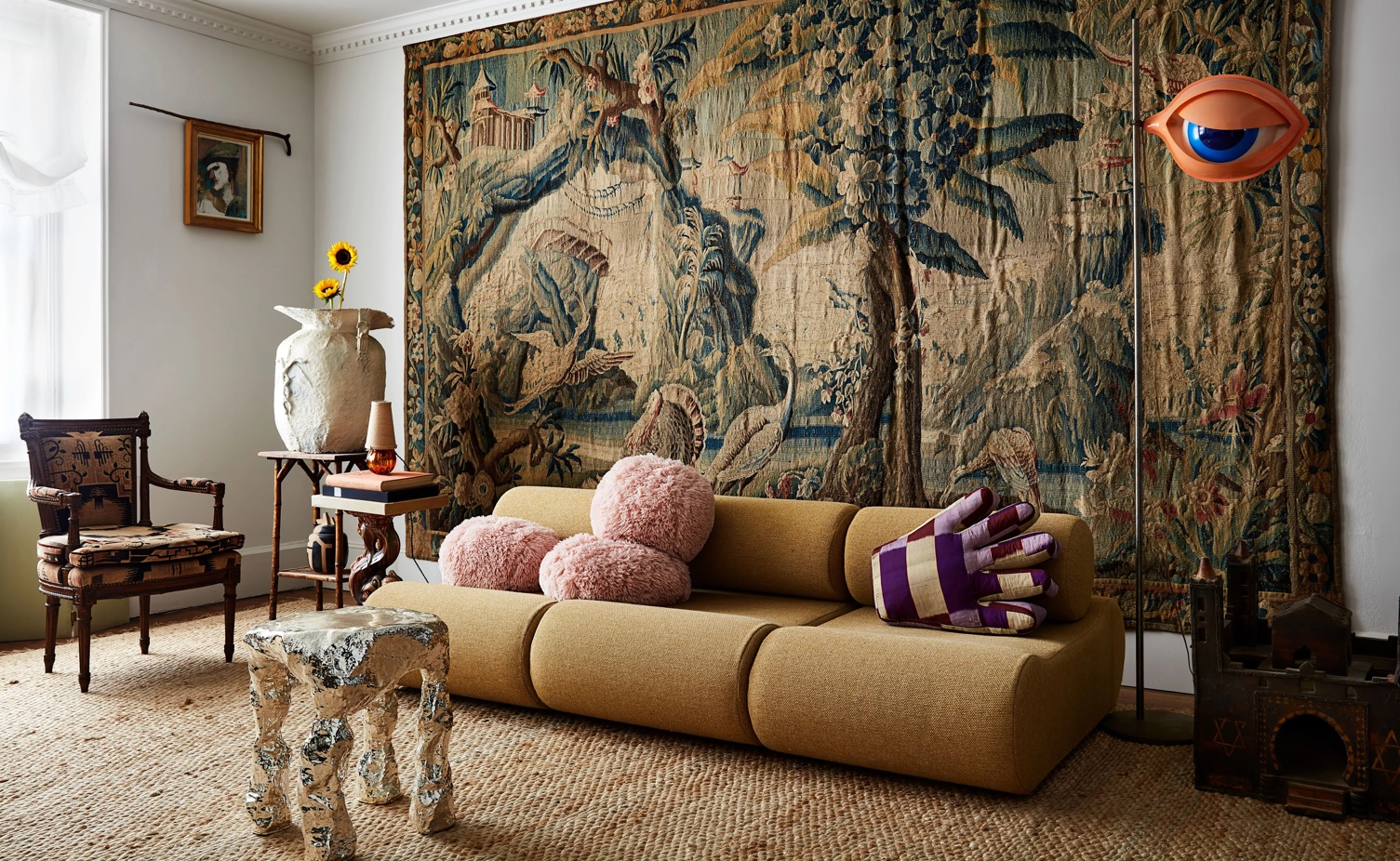
In this example by Charlap Hyman & Herrero, a Los Angeles, New York and Seattle-based architecture and design firm, the tapestry is used as a layer of decor, adding to the whimsical aesthetic of the room. The Aubusson tapestry is the star of the show but works alongside other examples of eccentric decor, like the modular couch designed by Klaus Uredat and the silver stool by Shun Kinoshita.
In this example, the tapestry functions as a piece of treasured living room wall art. 'We love tapestries and how they have evolved over the ages to become important pieces of modern art,' explains Deborah Hancock from the interiors firm, Rees Roberts. 'They play especially well in spaces where texture and hand are strengths of a room.'







